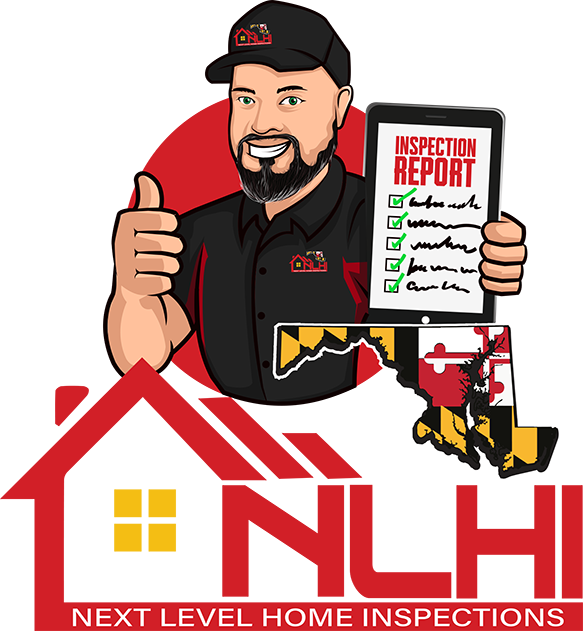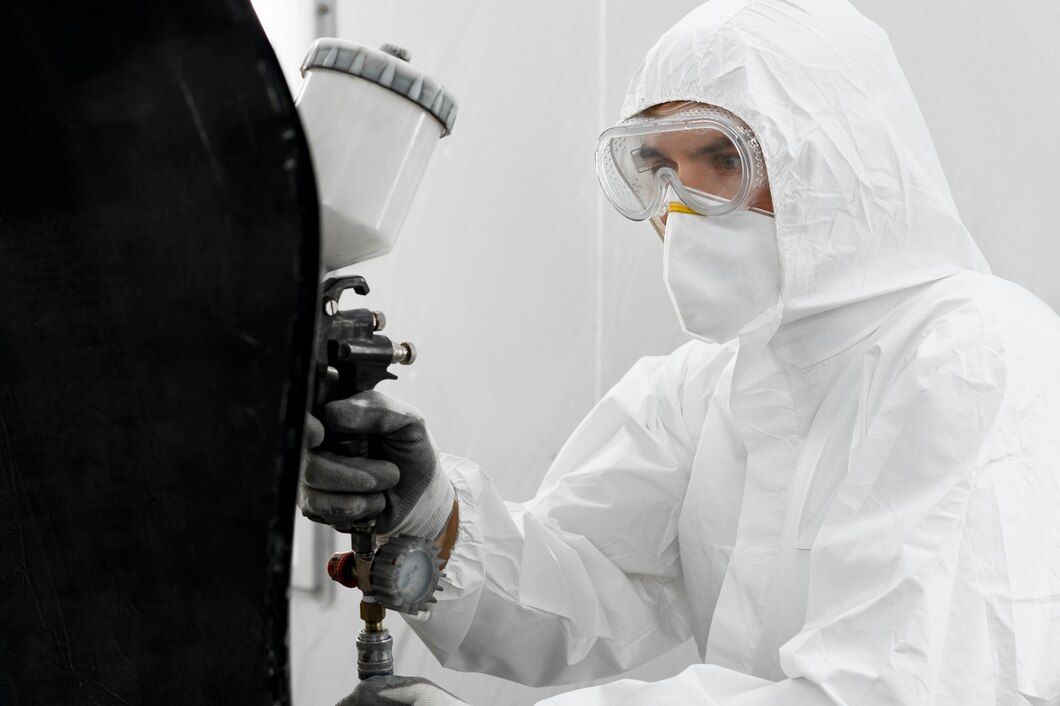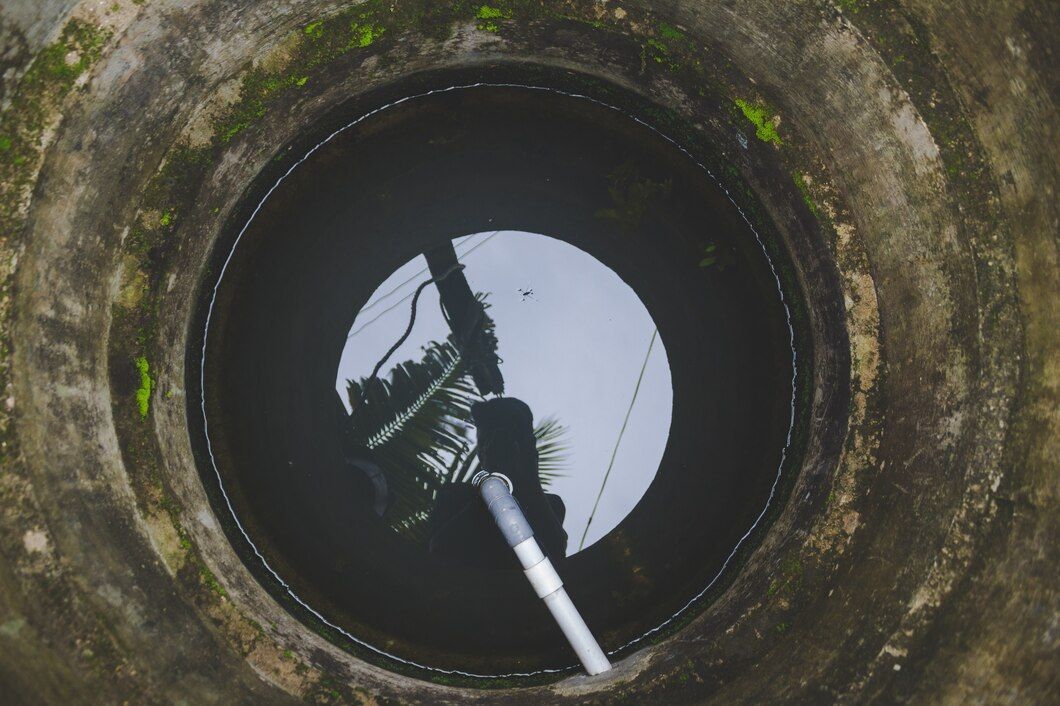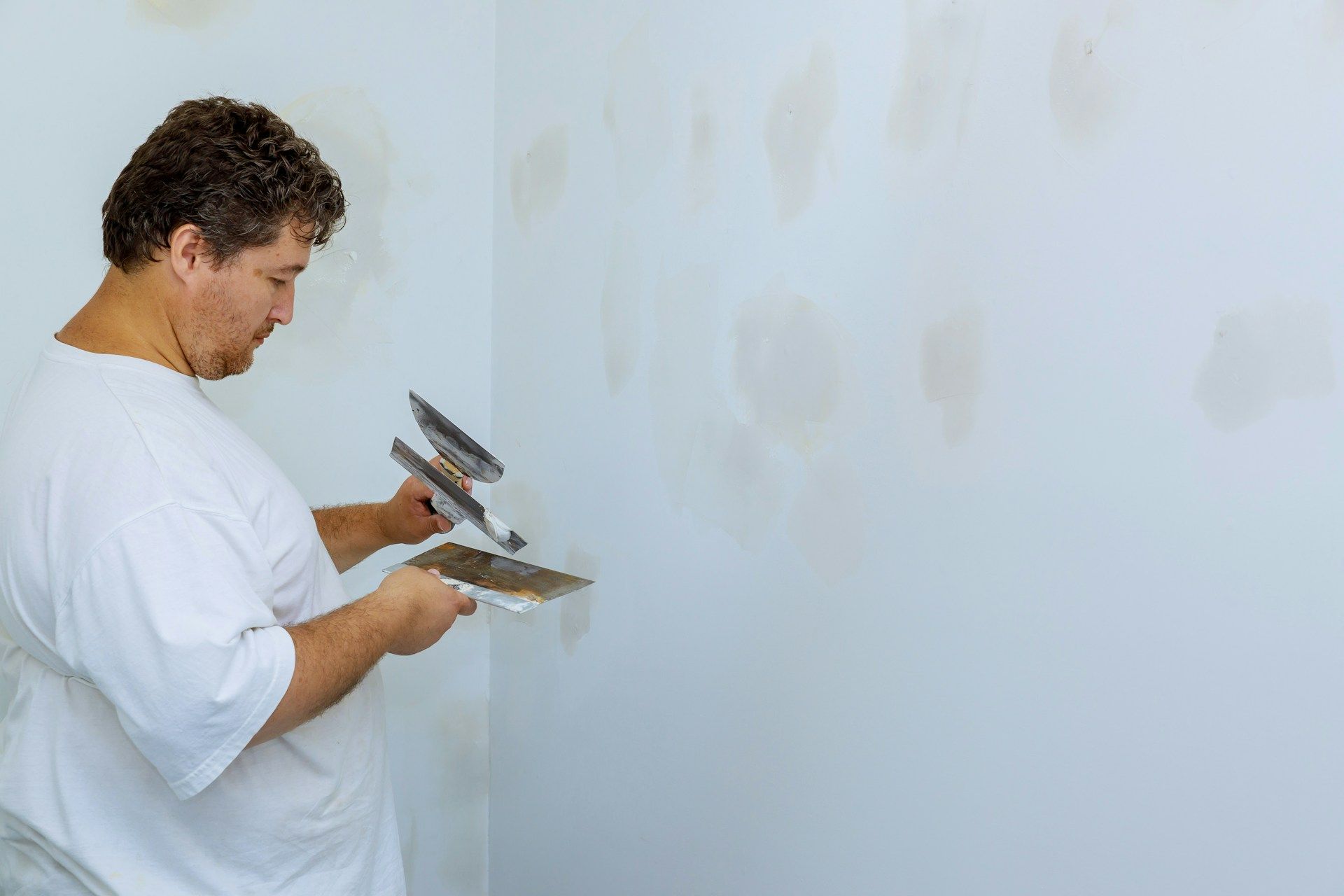Skipped Your New Home Inspection? Here's What to Look For (and Fix)
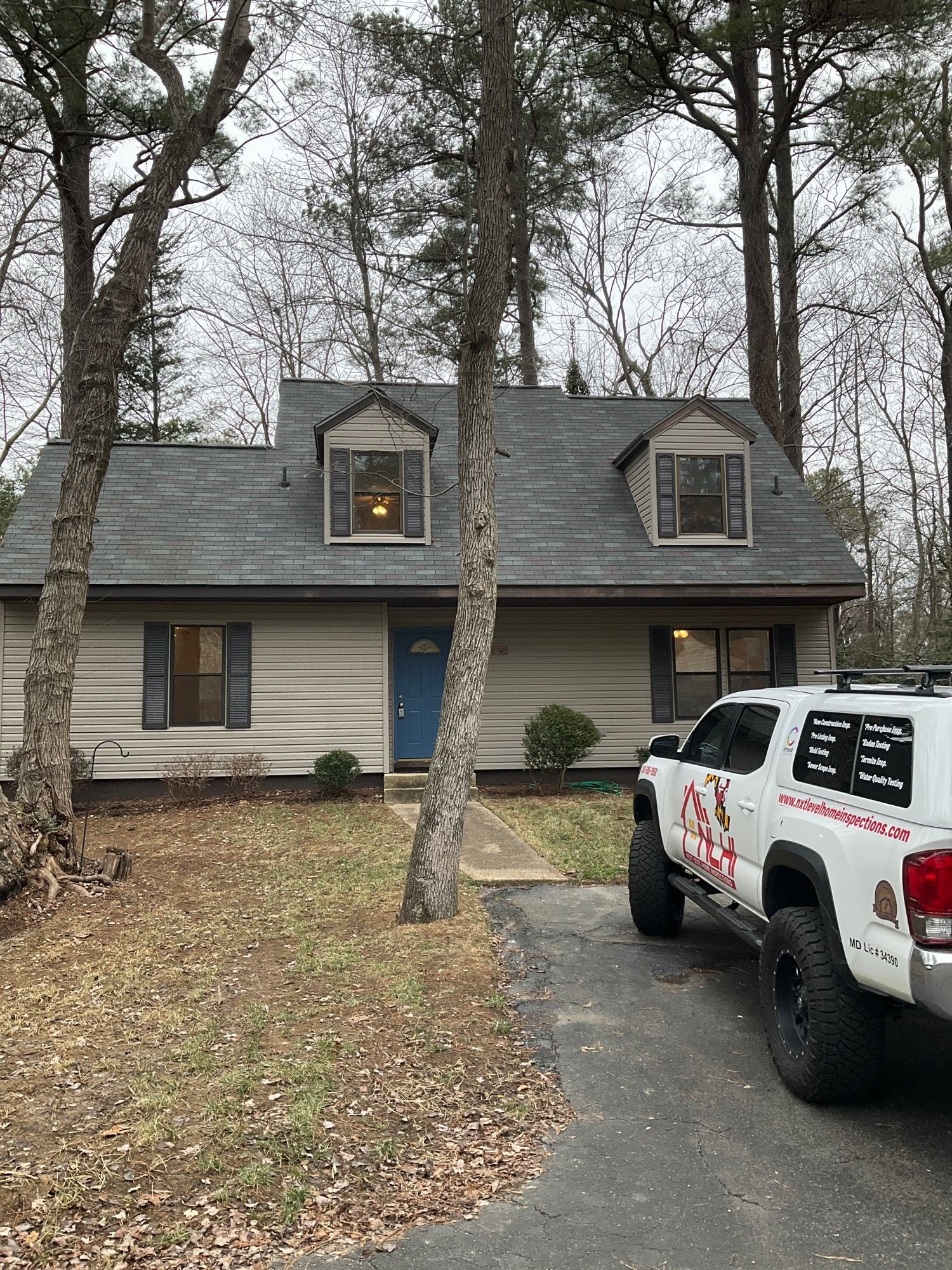
In 2023, the average price of a new home is higher than ever. Buyers are looking to cut costs wherever they can—and negotiating with sellers only gets them so far. More and more, buyers are cutting costs by skipping new home inspections, especially in red-hot markets where the demand for homes outpaces supply.
Unfortunately, while this might save you a small sum upfront and help you secure the home you’re bidding on, skipping a new home inspection opens the door to much higher costs down the road. If you’ve found yourself the winner of a bidding war and the owner of a new home that hasn’t been inspected, make sure you take the time to get familiar with your property. Here’s what to look out for.
New home inspection checklist
Unless you’re a home improvement expert, you won’t know what fixes to look for beyond cosmetic ones. That’s one of the reasons why a qualified expert should always conduct the inspection. Their report of home inspection findings will be comprehensive and thorough.
If you’ve decided to skip the inspection, look out for these major red flags before you put an offer in—and prepare to call a home inspector to assess them more thoroughly after you close.
Assess the foundation and structure
Every home needs a solid foundation—it’s critical to maintaining the structural integrity of your property. Considering that the average cost of foundation repairs can run from $4,000 to $12,000, it’s important to understand if a home has damage before making an offer.
While it’s best to leave foundation inspections to the professionals, there are some ways to determine if there are any hidden of problems. Check for bulging or cracks in the foundation and look for pooling water or water damage to the concrete. These signs often indicate stress on the foundation, or broken pipes.
There are some signs to look for inside the home that indicate structural problems. Check for warped floors or ceilings and look closely at the walls for cracks, leaning or bowing. Finally, check your windows and doors to ensure they open and close smoothly.
If a home exhibits any of the symptoms described above, it’s best to contact a professional to put your mind at ease and determine if the underlying foundation is structurally sound.
Inspect the landscaping
When you’re buying a property, the condition of the landscaping is more than an aesthetic concern. You’d be surprised at how quickly faulty landscaping can ruin an otherwise perfect home inspection!
For instance, tall, established trees are nice to have—yet, they can cause significant damage and impact your home’s structural soundness. A professional home inspector can help homebuyers detect any potential threats to a home—or its septic system—from large trees and their root systems. If you’re going it alone, look closely at large, established trees and consider investing in a specialized inspection to ensure tree roots won’t cause you further problems down the line.
Check major appliances and home systems
You’re doing yourself a disservice if you don’t inquire about the age and condition of major appliances and home systems when you’re buying a home—but don’t depend on the seller to give the right answer.
Sellers often guess or estimate the age of major systems like HVAC or roofs. While they often aren’t intentionally misleading buyers, they might instead be remembering when an appliance or system was last serviced. Repairs can certainly prolong the life of these features, but an old air conditioning or laundry appliance will need to be replaced sooner rather than later.
Consider the age and condition of these major systems before making an offer, and get them professionally inspected and serviced after buying a new home.
Verify the condition of HVAC systems
Furnaces and air conditioning units need regular maintenance to run their best, which is why home inspection services in Maryland look closely at these systems to make sure buyers are getting a fair deal on a given property.
As you consider the condition of a home’s HVAC system, look for dripping or standing water in the pan of the air conditioning unit—two indicators that there may be a blockage. Many buyers will request that the AC unit is serviced as part of the repairs to make sure the system is ready to go as soon as move-in day arrives.
Furnace maintenance is just as important, especially in a place like Maryland where temperatures drop in the winter. A professional home inspector will measure performance for gas and oil furnaces on whether it ignites and delivers the proper temperature to the home. While the average person won’t have the insight that a professional inspector does, you can still do a visual inspection of the furnace and note any superficial issues with age or performance.
Consider electrical components
If you’re wondering what inspections to get when buying a house, getting a professional opinion about a home’s electrical system is of vital importance. The average homeowner won’t have the electrical experience and know-how that a professional home inspector will, which is why a professional inspection is so important when buying a property.
For example, many older homes are missing GFCI outlets (the ones required in wet areas or exterior parts of the home), and they often contain outdated wiring and electrical panels. Any electrical issues flagged as potential fire and safety hazards must be fixed, and the average homeowner just can’t spot most of them.
If you’ve skipped a professional home inspection, it’s wise to invest in an electrical inspection from a licensed electrician. Finding even one electrical hazard quickly illustrates why home inspections are important.
Look closely at the roof
Roofing problems are one of the biggest reasons to get a home inspection. Any damage to a home’s roof—including missing shingles, damaged flashing, gutter problems or soft spots—can cause serious damage and major headaches down the line if not fixed quickly.
It’s not enough to inspect a roof from the ground—you need to get up close to determine if any damage exists. This process can be dangerous for the average homeowner, which is yet another reason why investing in the benefits of a home inspection is always a wise idea.
As you check your roof for damage, look past any cosmetic issues and check for significant problems. Also, keep in mind that tile or metal roofs come with their own specific issues and costs associated with repair or replacement.
Check for critical plumbing issues
Major plumbing problems can arise in a variety of places, from slow drains to poor water pressure. Make sure drains are clear—if left unchecked, they could lead to flooding and water damage. In terms of water pressure, make sure it doesn’t fall below 80 PSI, or it could indicate a faulty pressure reducing valve needs to be fixed.
One of the most important plumbing fixtures to check is the water heater. If the water heater is nearing the end of its useful lifespan (20 years for tankless and 12 years for tank-based systems), or if it shows signs of a lack of regular maintenance, ask the sellers to service the unit to determine if it needs to be replaced.
Check doors and windows
While there are no mandatory fixes after a home inspection, the condition of doors and windows is often a point of contention between buyers and sellers. As you determine a fair offer for a particular property, look at the condition of its doors and windows. If the seals are broken or rotting, it can significantly affect the costs to heat and cool the property, and it’s also a concern in terms of pest control.
Double-pane windows can be especially problematic, as failing seals cause moisture and fog to collect between the panes. Window seal repairs often cost more than $100 per window, so factor that cost into your offer if you spot a problem.
A note about new construction home inspections
It’s never wise to skip a new home inspection in Maryland—or anywhere else. There are several benefits of a home inspection, even when the property is brand-new.
Even newly built homes have hidden issues. Your home inspection findings can detail common problems like structural defects; drainage and grading issues; HVAC problems; electrical concerns; plumbing issues; and much more. In some cases, they’ll uncover projects that haven’t even been completed, like missing insulation, handrails, fixtures and more!
If you’ve made the choice to skip a new home inspection, you’ll need to discover any problems or incomplete work on your own. While some of these problems may be apparent, like missing fixtures, others might be hidden and come up later, like improper piping or grading issues that could cause water damage later on.
Even if you’re buying a brand-new property, a new construction home inspection in Maryland by the experts at Next Level Home Inspection gives you peace of mind that you’re getting a safe and hazard-free property.
Get a post-sale home inspection!
The truth is, there is no perfect home inspection in Prince Frederick, MD. Regardless of how well a previous owner has cared for and maintained a home, there’s always going to be some feature in need of a fix or update—even in a new construction home.
Not sure what inspections to get when buying a house? It’s never wise to skip a new home inspection; instead, rely on Next Level Home Inspection to ensure you get what you’re paying for in your next home purchase. As the leader in both resale and new home inspection services in Maryland, we help you make sure you’re making the best decision. Contact us for a home inspection that gives you peace of mind.
